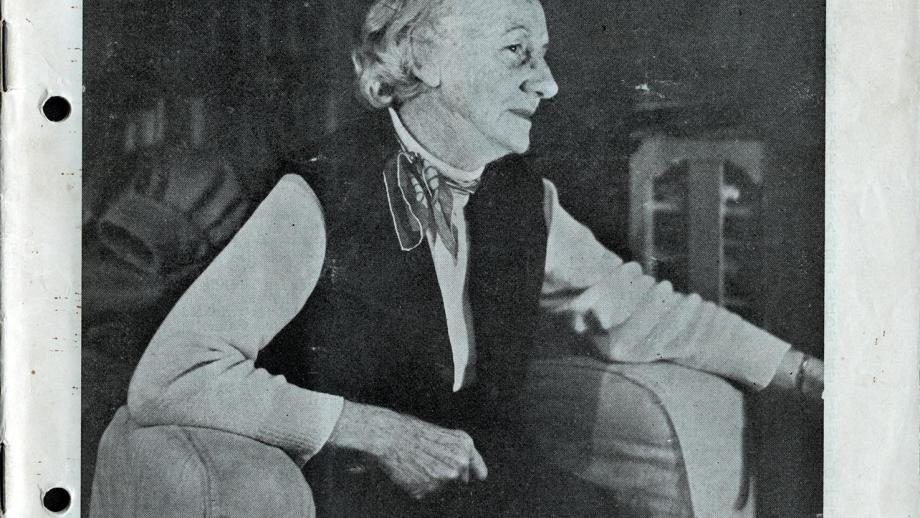Profile - Katharine Susannah Prichard (1883-1969)
Katharine Prichard was born in Fiji before relocating to Melbourne with her family as a child. She won a half-scholarship to South Melbourne College, but her studies were interrupted by her family’s poor financial circumstances and the priority given to her brother Nigel’s education. She became a governess in Victoria and NSW and developed a love of writing and literature.
Katharine’s stories were published in Melbourne newspapers in the early 1900s and she began an apprenticeship as a journalist. In 1908 she travelled to work as a journalist in Europe and North America, with a letter of introduction from family friend Alfred Deakin. She continued to write and publish stories and poetry.
She married Hugo (Jim) Throssell VC, whom she had met in London, and the couple made their home just outside Perth, Western Australia. During the First World War period, she became increasingly interested in socialism and communism and the politics of early Australian communists including Guido Baracchi and William Earsman. As well as focusing on her fiction writing, she also began writing on politics and established a local labor study group. She became a founding member of the Communist Party of Australia (CPA) in Western Australia in 1920.
Katharine continued to write fiction and published a number of successful works including Black Opal in 1921, Working Bullocks in 1926, Coonardoo in 1929 and Haxby’s Circus in 1930. Her literary success was dampened by the suicide of her husband Jim in 1933, who died while she was in Russia researching her book-length pamphlet The Real Russia.
Katharine mostly wrote political pamphlets during the mid-1930s mid-1940s. She continued to work for the CPA and the Peace Movement and established the Writers’ League in 1935 with Jean Devanny and was a founding member of the Western Australian Branch of the Fellowship of Australian Writers.
She continued to write, publishing the notable Goldfields Trilogy between 1946 and 1950. She also intensified her work relating to communism, nuclear disarmament and the Peace Movement and she was awarded the World Peace Council Medal in 1959. She became estranged from many of her CPA colleagues when she maintained a pro-Soviet stance and refused to condemn the Russian invasion of Czechoslovakia in 1968.
Katharine died in Perth on 2 October 1969.
References
Hay, J 1988, Katharine Susannah Prichard (1883-1969), Australian Dictionary of Biography, volume 11, National Centre of Biography, Australian National University, accessed <http://adb.anu.edu.au/biography/prichard-katharine-susannah-8112>

